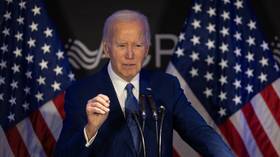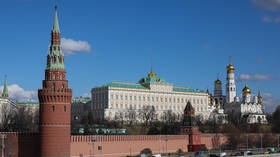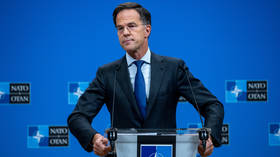The TAPI project or the future of Afghanistan
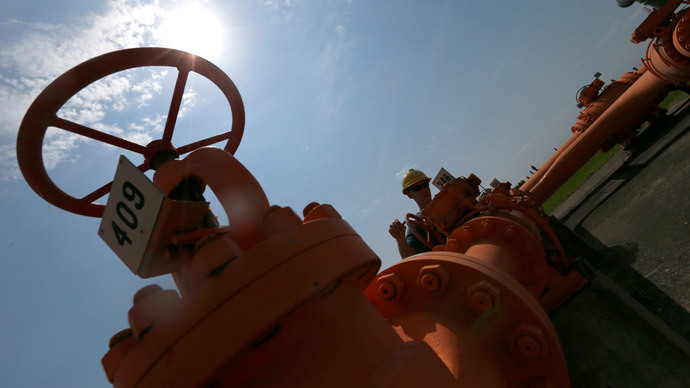
The term the "New Great Game", as a shorthand for the energy rivalry sweeping across Central Asia in the post-Soviet era has been in use for many years. In this respect, the Turkmenistan–Afghanistan–Pakistan–India gas pipeline (TAPI) appears pivotal.
After decades of planning and thinking about this pipeline, construction is finally due to begin next year.
The Oil and Gas Journal said that "Turkmenistan had 600 million barrels of proven crude oil reserves as of January 2014,” and the US Energy Information Administration (EIA) adds that the country "is [also] the sixth largest natural gas reserve holder in the world and was the second largest dry natural gas producer in Eurasia.” In fact, "Turkmenistan has become a leading natural gas exporter . . . Over half of [its] exports went to China, with Russia and Iran as the other major importers of Turkmenistan,” arguably leaving the West and its needs high and dry. And this is where neighboring Afghanistan becomes a key player in the West's quest for Turkmen gas. But now that the US and its NATO allies are set to leave the country, the likelihood of a Taliban resurgence appears likely, once again putting the construction of TAPI at risk.
Afghanistan seems to have been a major factor in the West's energy policy designs for some time, even though this aspect of the admittedly oil-free yet troublesome country is often overlooked. In response to the 9/11 terrorist attacks, the US government led by George W. Bush proceeded to invade and occupy Afghanistan. This landlocked Central Asian country had gone through a similar experience in the 1980s when the Soviet Union intervened militarily to save the Socialist government from the onslaught of the fundamentalist Mujahedeen or “Holy Warriors,” if you will. Following the ignominious retreat of the Soviets on 15 February 1989 the country fell into a perpetual cycle of civil war. This civil war arguably ended with the victory of the Taliban, as the ideological successors of the Mujahedeen, who took the capital of Kabul in 1996, but still had to contend with opponents like the Northern Alliance under Ahmed Shah Massoud, who was famously assassinated on 9 September 2001.
The Oil Argument behind the Soviet Invasion of Afghanistan
The Soviet military adventure in Afghanistan lasted for a little more than nine years and arguably wrecked the Soviet economy thereby hastening the demise of the USSR. In fact, the Soviet Union was officially dissolved less than two years after the end of the occupation of Afghanistan - namely, on 26 December 1991. Even though on the surface, this historical episode was all about ideology and the struggle for political supremacy, behind the scenes the real reason once again appeared to have been oil or at least that is what the CIA thought. In March 1977 the Agency's Office of Economic Research released a secret 14-page memo, entitled “The Impending Soviet Oil Crisis” (which was declassified and released in 1999). The memo contends that the "Soviet oil industry is in trouble. Soviet oil production will soon peak, possibly as early as next year and certainly not later that the early 1980s.” At the time the CIA asserted that the Soviets were experiencing "two basic problems: one of reserves and one of production.” Against this backdrop, President Carter pronounced his doctrine on 23 January 1980, as part of his State of the Union Address. The so-called Carter Doctrine stated that any "attempt by any outside force to gain control of the Persian Gulf region will be regarded as an assault on the vital interests of the United States of America.” In this way, it would appear that Carter regarded the Soviet intervention in Afghanistan as the opening move of a Soviet attempt to reach the Persian Gulf. And the United States were determined to thwart any such Communist plan: "and such an assault will be repelled by any means necessary, including military force,” stated President Carter.

The Brzezinski Factor
As I wrote some years ago: “During the presidency of Jimmy Carter (1977-81), the role of the national security adviser, Zbigniew Brzezinski, cannot be underestimated in this context. Brzezinski, as an American of Polish descent was then a rabid anti-Communist, and upon his appointment he immediately set up the Nationalities Working Group (NWG) dedicated to the idea of weakening the Soviet Union by inflaming ethnic tensions among subject Soviet peoples, primarily targeting the Islamic population living under communism. He seems to have been particularly involved in the situation in Afghanistan, which wasn’t even part of the USSR. In an interview conducted by the well-known French journalist Vincent Jauvert, published in Le Nouvel Observateur (Jan. 15-21, 1998), Brzezinski made some astounding claims: “According to the official version of history, CIA aid to the mujahedeen began during 1980, that is to say, after the Soviet army invaded Afghanistan on Dec. 24, 1979. But the reality, secretly guarded until now, is completely otherwise. Indeed, it was July 3, 1979, that President Carter signed the first directive for secret aid to the opponents of the pro-Soviet regime in Kabul and that very day I wrote a note to the president in which I explained to him that in my opinion this aid was going to induce a Soviet military intervention.” He then qualifies his hyperbole somewhat: "We [the US] didn’t push the Russians to intervene, but we knowingly increased the probability that they would."
As a result, Brzezinski appeared to have taken the 1977 CIA memo quite seriously and so transformed Afghanistan into a perpetual battlefield in order to safeguard America's hold over the Persian Gulf (the main transport route for oil). The US concern for the free flow of oil led to its support for the Mujahedeen who became the Taliban. And so the West's quest for hydrocarbon advantage condemned the country to a state of unending civil war.
9/11 and the invasion of Afghanistan
The Taliban rule was ended by the US invasion led by Bush, Jr. even though the Taliban are now primarily known for their strict interpretation of Islam and their destruction of the Buddhas of Bamiyan; they also appeared to have had an interest in the hydrocarbon trade. As I wrote elsewhere: "As long ago as 1997, the Taliban . . . sent a delegation to Texas to talk about a possible lucrative pipeline passing through their territory. Then-Governor of Texas George W. Bush supported the Texas firm Unocal in its dealings with the Afghans. Subsequently, Unocal and its partners planned to build a 1,000-mile gas pipeline from resource-rich Turkmenistan to Multan in Pakistan, passing through the Taliban heartland of Kandahar. In the waning years of the 20th century, the BBC dutifully reported that this deal was part “of an international scramble to profit from developing the rich energy resources of the Caspian Sea.” In other words, the Unocal deal with the Taliban was instrumental in the 21st century development of the “New Great Game,” I referred to earlier. In this way, the pipeline argument became an important plank in arguing that the Bush administration had been somehow complicit in the events known colloquially as 9/11. One of the most prominent promoters of the pipeline argument was none other than the filmmaker-turned-celebrity social critic, and political activist Michael Moore. In his now probably infamous 2001 book Stupid White Men, Moore spends some time talking about the oil firms Unocal, Halliburton, and the project to build a pipeline through Taliban territory, significantly ending the paragraph with the question, "[w]hat happened to that pipeline deal?” Moore also dealt with the pipeline argument in his 2004 documentary Fahrenheit 9/11, a film that is described as a "searing examination of the Bush administration's actions in the wake of the tragic events of 9/11," on Moore's personal website.
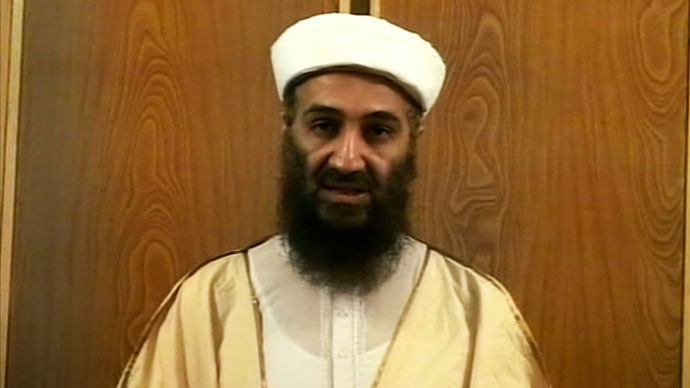
TAPI and Bin Laden
The BBC’s former Pakistan correspondent George Arney confidently reported on 18 September 2001 that a "former Pakistani diplomat has told the BBC that the US was planning military action against Osama Bin Laden and the Taliban even before last week's attacks.” The Pakistani diplomat in question was Niaz Naik, and he had apparently attended a meeting at a hotel in Berlin in mid-July 2001, in conjunction with senior Americans, Russians, Iranians and Pakistanis. The 4-day Berlin meeting carried the heading “Brainstorming on Afghanistan” and was apparently the outcome of the Clinton administration's concerns over Osama bin Laden.
Following the 1998 attacks on two US embassies in Africa in Dar es Salaam and Nairobi, Bill Clinton had singled out Bin Laden as the main culprit, which then led to US air strikes on targets in Afghanistan and Sudan; air strikes which also conveniently deflected attention from an intern called Monica Lewinsky. Originally Bin Laden had helped the US against the Soviets in Afghanistan in the 1980's, setting up the so-called Maktab al-Khizmat to provide accommodation and logistic support to volunteers joining the good fight (in all, about 25,000 such foreign fighters known as Arab Afghans were active at the time). Following the end of that anti-Soviet Jihad, the Saudi eventually moved to Sudan in 1992, after having spoken out against Saudi reliance on the U.S. But, due to US and Saudi pressure, he returned to Afghanistan in 1996, forming a close bond with the Taliban leader Mullah Mohammed Omar.
The Berlin meeting was part of a series of get-togethers aimed at devising a strategy to get hold of Bin Laden, but apparently also to discuss the construction of an oil pipeline that would grant U.S. access to Central Asia's hydrocarbon wealth. According to Naik, a US delegate at the meetings issued an ominous ultimatum to the Taliban: “Either you accept our offer of a carpet of gold [in exchange for Bin Laden], or we bury you under a carpet of bombs.” Following the 9/11 Attacks and particularly in view of Niaz Naik's testimony, the wheels of conspiracy theorizing started turning in earnest, and, "Bin Laden, the theory goes, then decided to strike first, making the Sept. 11 attacks not a random act of terrorist violence, but rather a preemptive strike — a calculated response to the Bush administration’s love of oil, and its irresponsible saber-rattling in pursuit of it,” as worded by the American journalist Damien Cave in 2002. In 2009, the erstwhile diplomat Naik had the utter misfortune of becoming the victim of torture in his own residence in Sector F-7/3 of the Pakistani capital Islamabad. His torturers ended up killing Niaz Naik and thereby succeeded in lending his testimony even more credibility as Naik had now clearly become a man-who-knew-too-much who had to be, and was thus duly silenced. But since then it has emerged that prior to his violent death, Niaz Naik answered a query regarding the fact whether such a pipeline discussion had been on the Berlin meeting's agenda with the categorical words "No, absolutely not.” But the genie had been let out of the bottle and the pipeline argument has become yet another theory explaining the U.S. invasion of Afghanistan. This, in spite of the fact that the elusive transit route has not been built during the past decade of intense US and NATO investment in Afghanistan.
At long last, news is finally coming out that the Turkmen President Gurbanguli Berdymukhamedov has indicated that construction will finally start in 2015. From Ashgabat (Turkmenistan) the Associated Press reported recently that "the 1,735-kilometer pipeline will cost around $8 billion to complete and have an annual capacity of 33 billion cubic meters of gas. The pipeline will cross the Afghan cities of Herat and Kandahar and end in the town of Fazilka in Punjab in India". Berdymukhamedov declared that the "project for construction of the TAPI gas pipeline aims at ensuring the economic development of the participating countries and strengthening of political stability in the region.”
Will the completion of TAPI finally bring peace to Afghanistan? Will Afghanistan now really become an integral part of the West's energy future? Or will the post-2014 future of the country be a repeat of the previous decades? Economic development or civil war?
The statements, views and opinions expressed in this column are solely those of the author and do not necessarily represent those of RT.
The statements, views and opinions expressed in this column are solely those of the author and do not necessarily represent those of RT.






